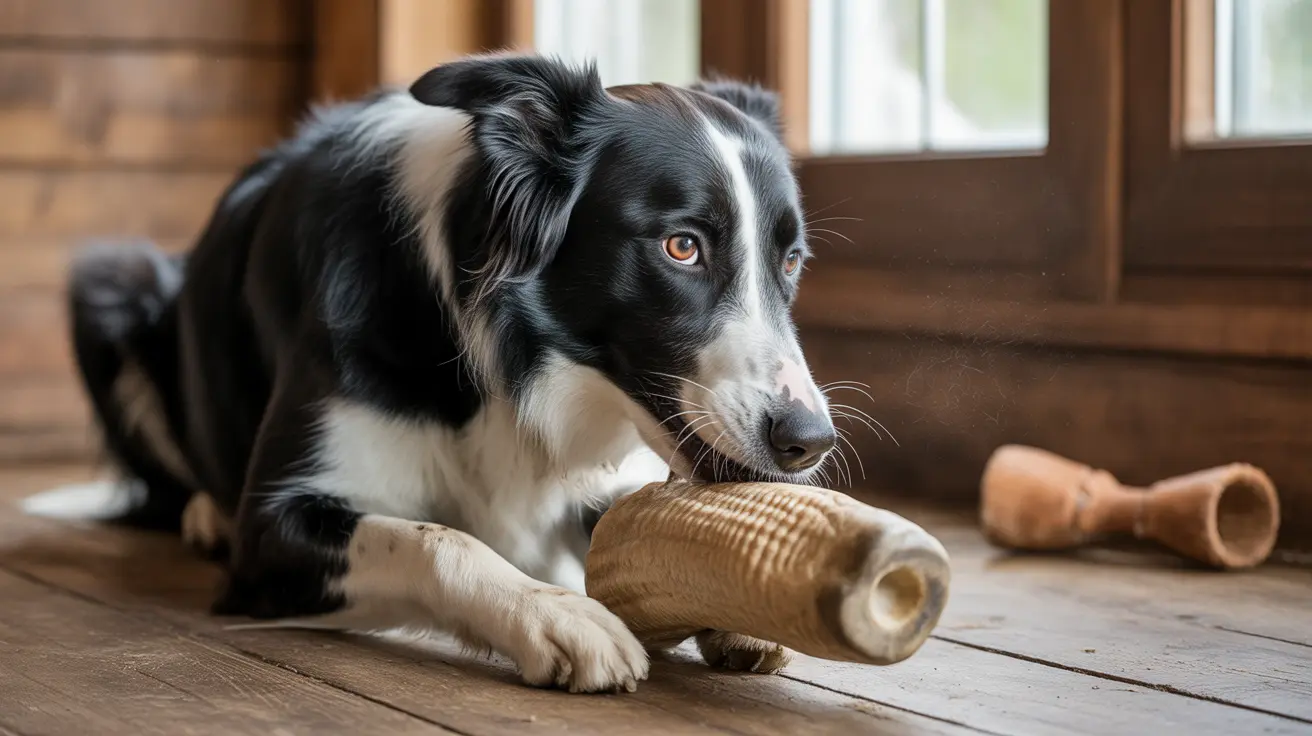Many pet owners wonder about the safety of cow hooves as natural chew toys for their dogs. While these durable treats can offer certain benefits, it's crucial to understand both their advantages and potential risks before introducing them to your pet's routine.
In this comprehensive guide, we'll explore everything you need to know about cow hooves for dogs, including safety considerations, benefits, and best practices for use.
What Are Cow Hooves?
Cow hooves are natural dog chews made from the cleaned and processed outer shells of cattle feet. These treats are primarily composed of keratin, the same protein found in your dog's nails. Most commercial cow hooves undergo sanitization processes and are available either plain or stuffed with flavored fillings to increase palatability.
Benefits of Cow Hooves for Dogs
Dental Health Advantages
One of the primary benefits of cow hooves is their potential to support dental health. The hard, abrasive surface can help remove plaque and tartar buildup as your dog chews. This natural scraping action may contribute to better oral hygiene and fresher breath.
Behavioral Benefits
Cow hooves can provide extended entertainment and mental stimulation for dogs. Their durability makes them lasting chew toys that can help:
- Reduce boredom and anxiety
- Satisfy natural chewing instincts
- Prevent destructive behavior
- Provide enrichment when stuffed with healthy treats
Safety Concerns and Risks
Potential Hazards
While cow hooves are non-toxic, they present several safety concerns:
- Risk of tooth damage or fractures
- Possibility of choking on broken pieces
- Potential for intestinal blockages
- Risk of bacterial contamination if not properly cleaned
Signs to Watch For
Monitor your dog while they're enjoying a cow hoof and watch for:
- Aggressive chewing that might lead to broken teeth
- Attempts to swallow large pieces
- Signs of digestive upset
- Excessive wear or sharp edges on the hoof
Best Practices for Giving Dogs Cow Hooves
To maximize safety when offering cow hooves to your dog:
- Always supervise chewing sessions
- Remove the hoof when it becomes small enough to swallow
- Limit consumption to occasional treats
- Provide fresh water during chewing
- Choose appropriate sizes for your dog's breed
Suitable Alternatives
If cow hooves aren't right for your dog, consider these safer alternatives:
- Bully sticks
- Dental chews
- Kong toys
- Yak cheese chews
- Natural rubber chew toys
Frequently Asked Questions
Are cow hooves safe for dogs to chew on, and what risks should I be aware of?
Cow hooves are generally safe when used properly, but they come with risks including dental damage, choking hazards, and potential intestinal blockages. Always supervise your dog and remove the hoof if it becomes too small or develops sharp edges.
How do cow hooves benefit my dog's dental health and chewing behavior?
The hard surface of cow hooves can help remove plaque and tartar while satisfying natural chewing instincts. They provide extended entertainment and can help prevent destructive chewing behaviors.
What precautions should I take when giving cow hooves to my dog to avoid choking or tooth damage?
Always supervise chewing sessions, choose appropriately sized hooves, and remove them when they become too small or damaged. Ensure your dog has fresh water available and monitor for aggressive chewing patterns.
Which dogs are best suited for cow hooves, and which should avoid them?
Moderate chewers with healthy teeth are best suited for cow hooves. Avoid giving them to puppies, senior dogs with dental issues, aggressive chewers, or dogs with sensitive digestive systems.
What are safer natural alternatives to cow hooves for dogs who need durable chews?
Safe alternatives include bully sticks, dental chews, Kong toys filled with treats, yak cheese chews, and specially designed rubber chew toys. Choose based on your dog's size, age, and chewing style.
Conclusion
While cow hooves can be appropriate chew toys for some dogs, they require careful consideration and supervision. Understanding your dog's chewing habits and following proper safety guidelines is essential. When in doubt, consult with your veterinarian about whether cow hooves are suitable for your particular pet.






